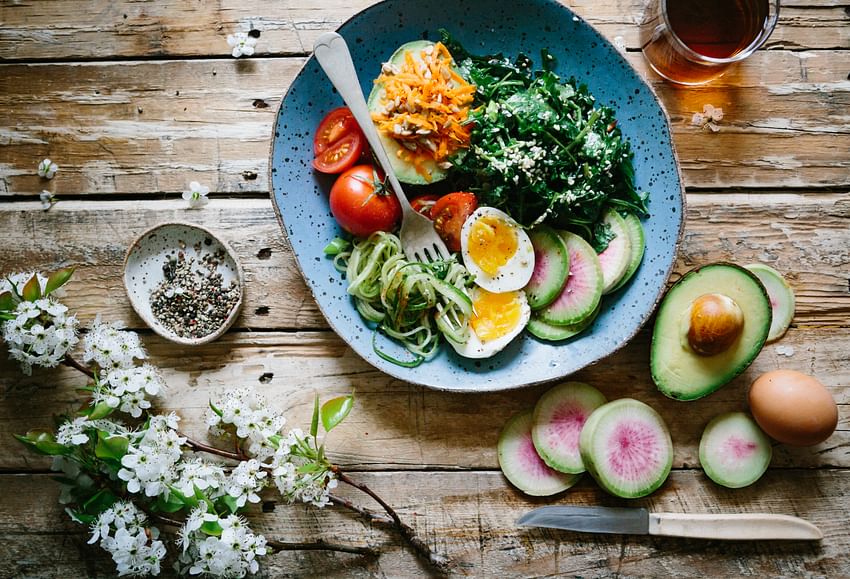6 basic principles for a healthy lifestyle - Diet and Hydration (2/6)
Article Outline
▼Summary
▼Nourishing Your Body with Whole Foods
We all know that food and water play a big role in how we feel, but it's easy to get overwhelmed by conflicting advice. Let's take a closer look at how we can make simple, nourishing choices that support our wellbeing. In this article, we'll explore practical guidelines for eating whole foods and staying hydrated.

This is part 2 of 6 in my blog series on the 6 basic principles for a healthy lifestyle - the following articles are also included in the series: Introduction (1/6), Sleep (3/6), Positive thinking (4/6), Movement and Breathing Techniques (5/6) and Discussion (6/6).
Diet and hydration can dramatically affect your energy levels and biochemical composition, which in turn affects your emotional and mental reality. When our diet is deficient, there is simply not enough energy or focused thought activity to initiate or sustain the changes needed for us to take good care of ourselves. My recommendations based on my own experiences are to vary and rotate the diet, to use only "real" food and to make it as simple as possible so that it works in real life, to eat 5 times a day and to always eat as much as you need.
In more detail:
- If it's white, don't eat it! Avoid white flour, white sugar and milk. Avoid food made from any of these three sources.
- Never eat gluten!
- If it wasn't here 10,000 years ago, don't eat it!
- Choose products, vegetables, fruit and meat that are organically produced.
- If you can't pronounce a word on the label of contents, don't eat it!
- The longer its shelf life, the more harmful it is likely to be to ingest.
- Avoid processed food - your body doesn't know what it is!
- Eat what is right for your needs.
I use Dr Batmanghelidj's guidelines to calculate the recommended daily fluid intake. Take your body weight in kg and multiply it by 0.033 to get the number of liters of water you should drink per day. For example, an 80 kg person needs 2.64 liters of water under normal circumstances. If the person in question is exercising and/or lives in a hot climate, he/she should drink more.
Nothing can replace pure water, not tea, not juice, not beer...nothing! Don't buy juice, it's just sweetened water! Make your own juice instead, or even better, eat the fruit as it is.
If you buy water, choose the brands that sell the most and fastest, as the water will be exposed to any substances from the plastic bottles for a shorter period of time. If possible, buy water in glass bottles instead.
Add a pinch of sea salt to your water to replace electrolytes.
Check your tap water, does it meet the standards and guidelines for drinking water? If you have your own well, check the water regularly. Use filters whether you have a municipal or private well.